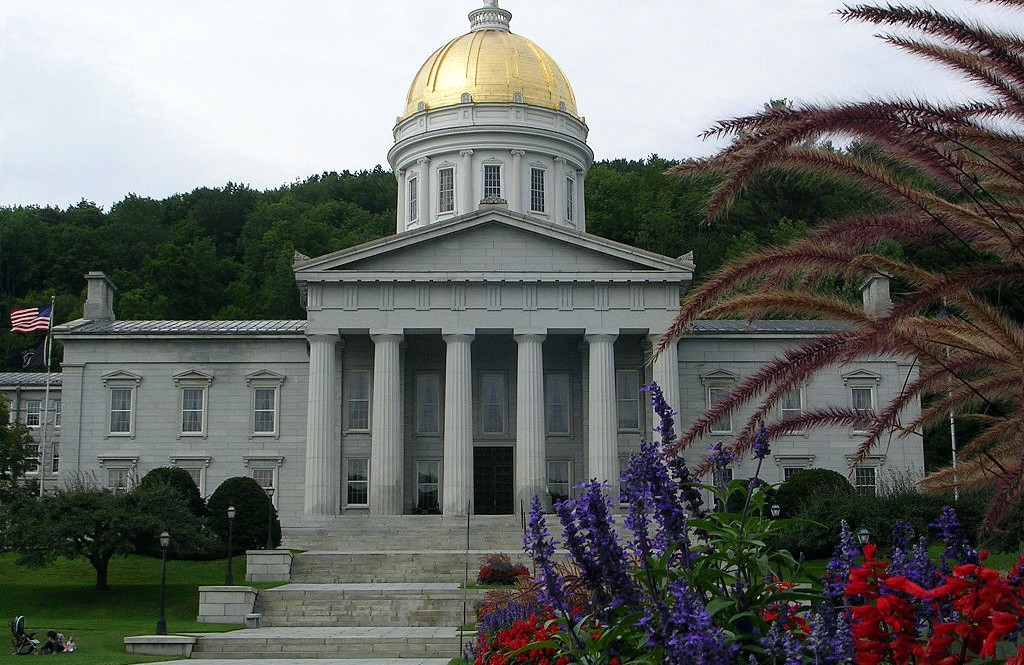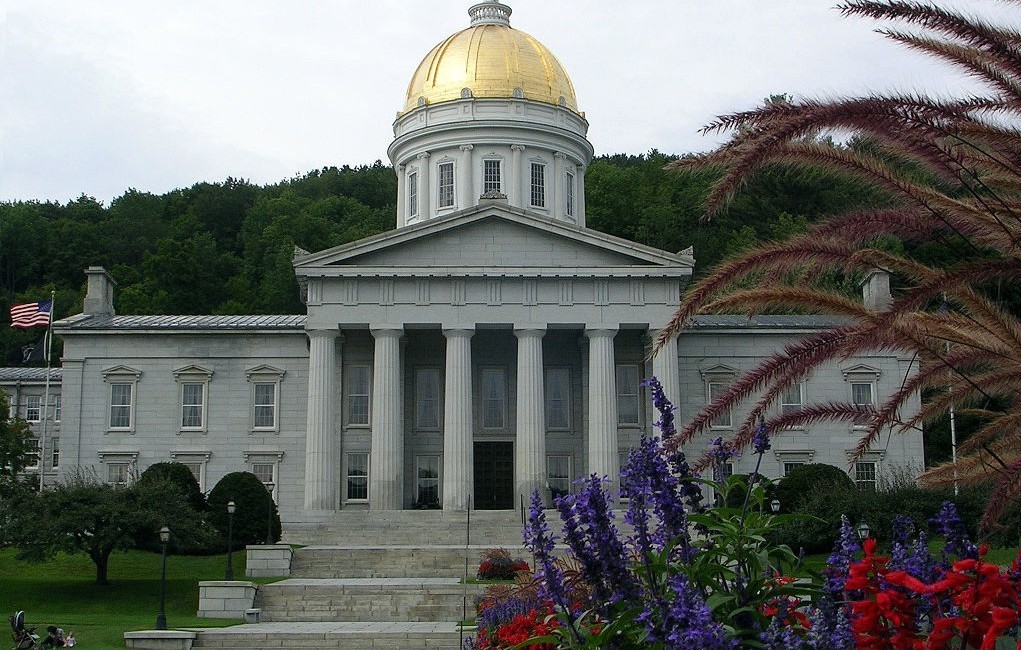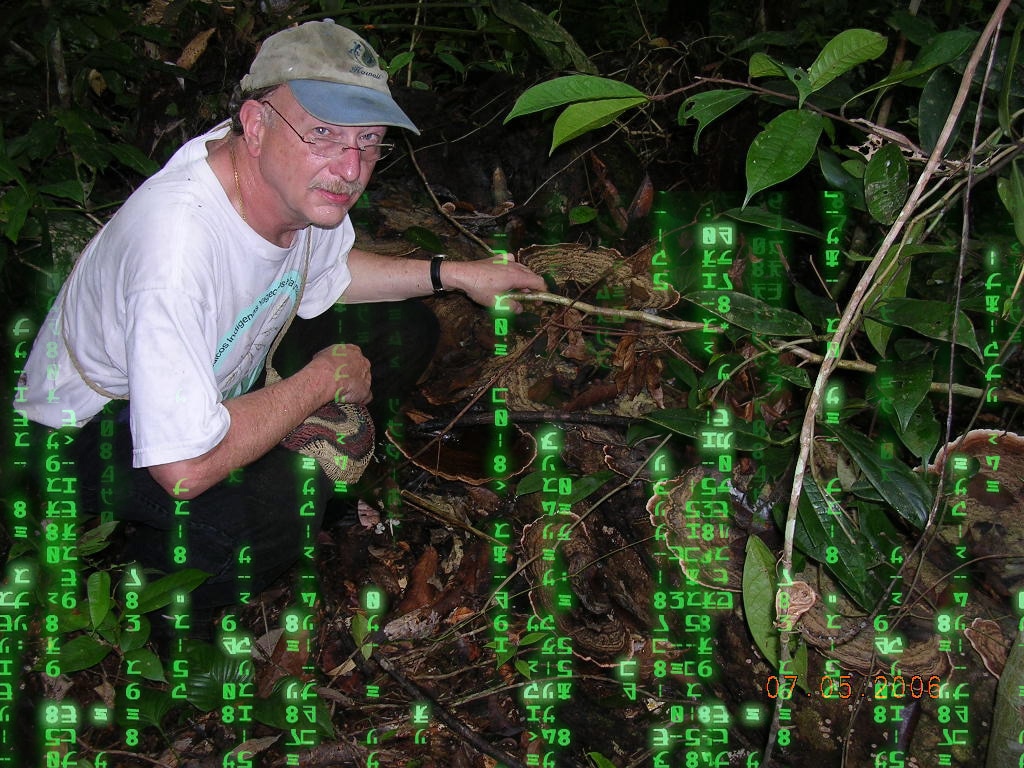
Vermont is the first state in the United States to consider an ibogaine pilot program to research treating opiate addiction. | Image Source: Wikimedia Commons
The fate of psychedelic medicines — which often evoke fear-based reactions from those who have been conditioned by decades of anti-drug stigmas — rests in the hands of those who choose to stand up and advocate for their acceptance. One such advocate is Bonnie Scott, a libertarian Vermonter who is leading the effort to make ibogaine treatment legal in her home state through a bill that was recently introduced in the state legislature. We covered the introduction of this bill in an earlier article on Psychedelic Times and recently got a chance to speak with Bonnie about the promise and challenges of getting ibogaine treatment legalized in Vermont.
A Path to Ibogaine Advocacy
I first asked Bonnie about what called her to this effort and how she came to learn about ibogaine. “I was interested in legalization of cannabis way back in the late 1990s. I lived in New York City then, and at a marijuana march, I met activist Dana Beal who would speak about ibogaine at his meetings. Later on, I went to an ibogaine conference in 1999 and learned for the first time about all the science behind ibogaine treatment. For the next thirteen years, I would tell people about ibogaine when I could, but it often wasn’t something [people were] terribly interested in.”
The relative disinterest in ibogaine as an addiction interrupter par excellence would not last long. Due to over-prescription of opioid painkillers and other factors, heroin began to rise in popularity across the US and particularly in the northeast. Even sleepy, rural areas in Vermont were witnessing an unforeseen increase in opioid addiction and overdosing deaths. Bonnie explained:
“In 2014, Governor Shumlin devoted his entire ‘State of the State’ speech on the opioid problem in Vermont, and across the country, everybody was suddenly paying attention. I realized it was the best time I would ever have to talk about ibogaine and let people know about its potential to deal with the issue. It was a matter of being in the right place at the right time here in Vermont because all of a sudden everyone wanted to do something about the opioid substance abuse issue. The epidemic came on very quickly and shook up a lot of people.”
So how bad is the opioid problem in Vermont? “I don’t think it’s out of line with how it is in other states, but because of our demographic and because of the stereotypes people have, even in a 97% white and mostly rural state, we have a problem. Rolling Stone wrote an article about it being an issue here, and it had a kind of shock value. So people have had a wake-up call about opioid abuse in Vermont, and now when we talk about ibogaine, they have a big reason to listen.”
Taking the Legislative Route
Much like how cannabis became legalized in states like California and Oregon, Bonnie and her team are working to make ibogaine a legal treatment within the state of Vermont, and I asked her about the latest bill they helped to introduce. “Our original bill H.387 had some problems, but the new H.741 is wonderful and has a number of state representative cosponsors. The language of 741 is set up where there is a public and private fund [for] donations, so we are not dependent on the appropriations committee to give a lot of money. In fact, really just having that stamp from the state of Vermont saying we want to include ibogaine in our treatment program is more valuable than state money, because I’m already finding private donors who want to support this. This bill would add that extra kick that tells the FDA that hey, we want to have this in our state.”
The design of the bill is also quite ingenious, as it seeks to fit seamlessly within Vermont’s existing addiction treatment system rather than create a standalone ibogaine treatment option. Bonnie explained:
“Vermont’s treatment system is set up as a hub and spoke, where the hubs are the larger centers where they can evaluate people and hand out methadone, and the spokes are the therapists which focus on ongoing care and other specialties. This bill would allow an ibogaine clinic to plug into that system as a spoke where a therapist in some other spoke can say ‘Hey, my patient wants to kick their opioid habit completely, I think they’d be perfect for ibogaine,’ and then refer them to an ibogaine clinic where we’ll have an ongoing FDA-approved study.”
The True Face of Drug Legalization
Bonnie and her collaborators at Vermonters for Ibogaine Research are making great strides with their ibogaine advocacy, and as amazing as it will be if and when bill H.741 passes, it is also part of a larger conversation about psychoactive plants and medicines and how we understand them as a culture. “As a libertarian, I believe that nobody should be made a criminal for something they possess or ingest. Coming from a background in marijuana legalization, I saw ibogaine as something that we could legalize too, and in doing so, help people who really need it — and through that counteract some of the biggest fears about what drug legalization looks like.”
If you would like to help support Bonnie’s efforts, you can write to [email protected] or reach out directly to the Vermont House of Representatives to let them know how important the legalization of ibogaine treatment is in the fight against rising opioid abuse.










